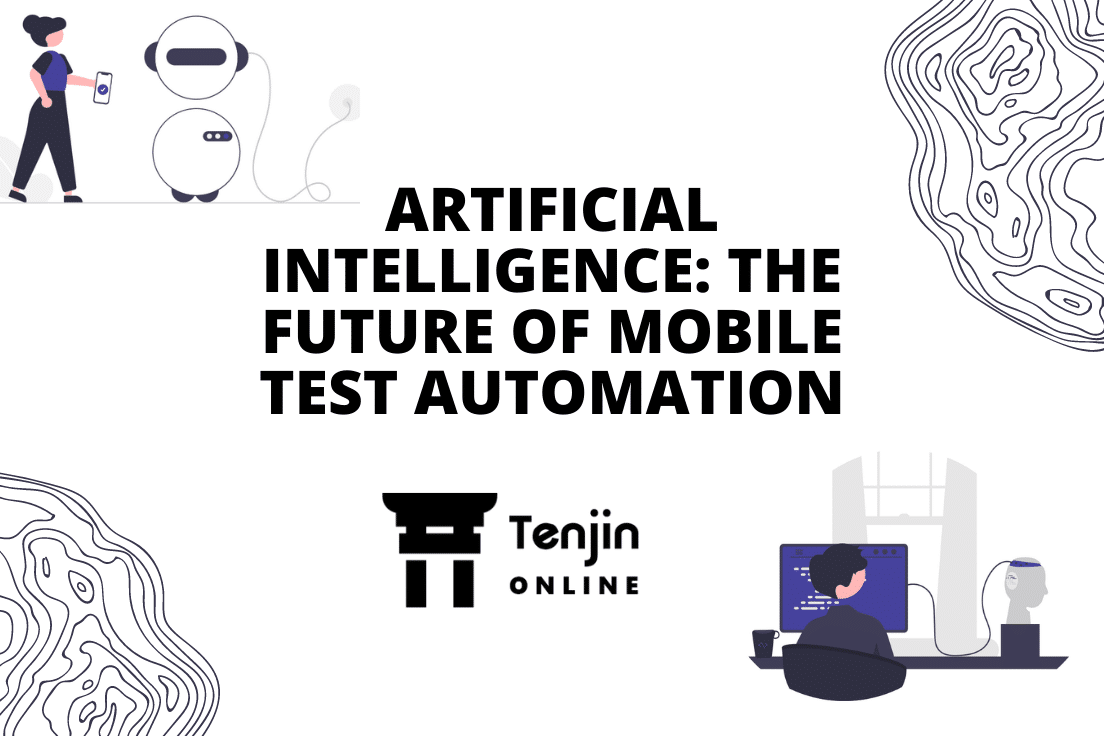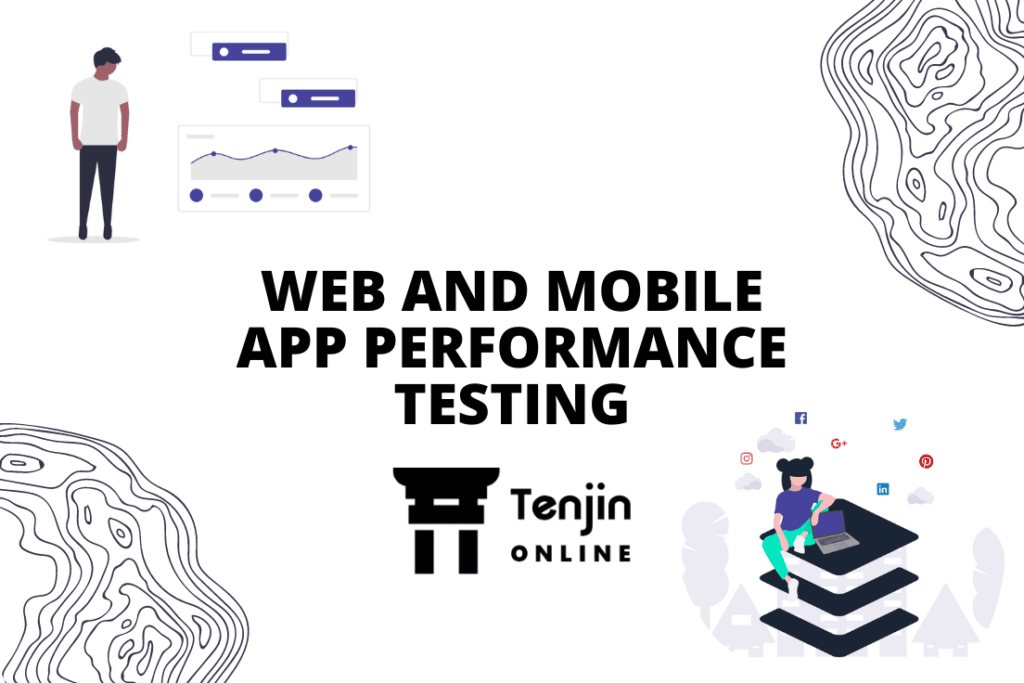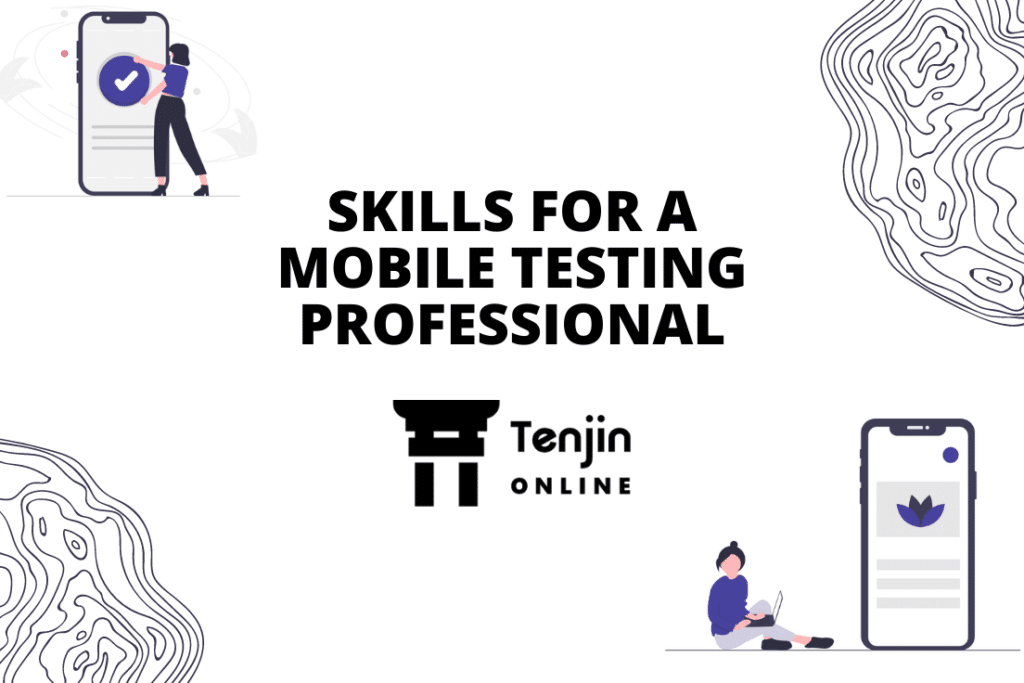
Started as a mere defect identification and debugging process, software testing further gained immense significance for offering a better picture of the quality measurement. Software testing has evolved over the years to redefine the process and create software of higher quality. The trend witnessed some of the popular processes such as manual testing, code-based automated testing, and codeless automation testing. The current time is the era of Artificial Intelligence (AI), which is the most advanced of its previous counterparts. AI is still at a nascent stage, when its potential is fully leveraged, it will completely transform the test automation process by offering accurate results not in days or hours, but in minutes and seconds.
AI-enabled testing mimics human behavior to perform completely automated testing. AI testing, with its perpetual algorithm, can intelligently find out even the slightest of the error while giving scope to the developers to build error-free models. Further, its predictive analysis capabilities will check all the current data for future possible results and optimize the outcomes as required.
As mobile apps are becoming an integral part of our lives, the need for improving their quality is getting crucial. The speed at which app development is gearing up, the other automation solutions are unable to keep up with the speed and are often found to be time-consuming. Al-driven testing is the right solution for mobile test automation to keep up with the trend. AI solutions are already being incorporated in mobile app testing with great results, it is considered to be the future of mobile app testing.
What makes AI test automation so popular?
AI is creating a lot of buzz across all industries; software testing is no exception. The AI-driven testing approach is gaining popularity for significantly removing the hassle, reducing time-to-market, and providing accuracy, precision, and consistency. Here are some of the reasons that make AI-enabled testing a popular choice within the industry.
Quality product development in short turnaround
Testing automation has reduced human intervention in testing to a great extent. One of the reasons for the increasing popularity of AI test automation is that it performs testing without test cases and test steps. It eliminates the monotonous and cumbersome process of code creation, code maintenance, and scalability issues while speeding up the entire process. However, some testing responsibilities like decision making, validation, supervision, conducting exploratory tests, and many others that machines cannot perform may need human intervention.
Repetitive activities like regression testing, bug detection from a thousand line code, or programming test cases may be mundane and lead to human errors. Such errors can be easily avoided or eliminated by AI testing in much lesser time. As per experts, in the near future, man and machine will work hand-in-hand to produce a quality result. The combination of humans and AI is also known as an intelligent augmentation that promptly makes a high-quality product in a lesser time duration.
Steady testing with round the clock maintenance
Some types of testing, like unit testing, API testing, UI testing, etc., must be performed continuously. Though the test case execution has already been automated by codeless test automation, the maintenance of the test cases still remains manual, which sometimes get mundane and time-consuming. However, with the help of Artificial Intelligence and Machine Learning, the test execution process can be automated through advanced algorithms. AI-driven test execution helps companies to save considerable time and cost while assuring a good business ROI.
AI test automation algorithms learn regular tests to understand the behavior of test cycles. At the time of test case execution, the product’s current state is checked for match from the stored information or collected data. If specific changes are required, then test cases are updated accordingly. Hence, the test cases are maintained without any human intervention.
Removal of Unconventional Tasks through Self-Recovery Process
The self-recovery process is a part of the AI improvement strategy. To perform self-recovery, AI uses all the information stored within. This is an important step carried out by AI to mitigate risks and predict future outcome. Any associated errors can be identified and fixed during the process of self-recovery. This process offers a wide scope to keep the data error-free by continuously performing recovering testing and improving the product quality.
Improved Defect Tracking
In any software, as the data grows, the bug probability also gets increased, hence, leaving certain bugs unnoticed for a long time while performing manual or conventional testing techniques. However, AI-based testing methods can trace the flaws instantly. Any new bug can be quickly identified by AI and allows the software development team to remove it earlier in the product development cycle. AI-based systems have bug-tracking systems that can identify the failure points and prevent further errors.
Regression Testing
For the applications with rapid and progressive deployment, regression testing may be required to test if any additions/changes are working fine. Regressions are tedious and may lead to missing out on errors when performed manually. On the other hand, AI and ML can perform tedious regression tests and produce test cases or scripts effortlessly. For example, if any changes are made in the application’s UI, then AI can scan the complete application and identify new changes and perform the test.
Visual Testing
The visual validation of the app’s UX/UI can also be done through an AI-based solution. It helps in testing the user interface of the application. As human involvement is required to judge the visual representation, these tests sometimes become challenging to validate the requirement. Automation testing can execute many functions, including taking screenshots, measuring load time, judging the design, and many more that sometimes it may be difficult for any human or individual to point out the error. AI testing can reduce framework building, risk summarization, and many other related tasks.
Self-Repair feature for better performance
Automated testing frameworks are productive, but it sometimes becomes complex and time-consuming and even a minor technical glitch can slow down the progress of the test cases. AI-based testing can automatically identify the errors and intelligently repair them as well. The developers can also get technical insights and improve their testing process. The self-repair feature can make the testing framework productive.
Descriptive Test Case Writing
The test case quality gets improved to conduct automation testing. By traditional test methods, it becomes difficult for the developers to identify and analyze any additional possibility to the test case. AI offers real test cases that can regulate the actual test case execution easily and quickly. AI makes the project analysis quicker and enables the developers to figure out the new options in test cases.
The Future of AI in mobile app testing
Most of the times, AI can execute complex tasks that may require human intervention. At the same time, this is also true that AI can never replace human intervention entirely. Human involvement will always manage test results, setups, etc. The testing will still have to be scaled to bring higher ROI. AI will also make its way into the lifecycle of software development. Organizations are using AI technology even to execute their product engineering functions.
With the immense benefits it is offering, AI testing is slowing taking over the other methods of software testing. With its ability to drastically reduce human efforts and bring down the execution time like never before, AI testing technology is here to stay. It is estimated that AI testing techniques will support the testing industry and transform it for the better.



Leave a Reply
You must be logged in to post a comment.